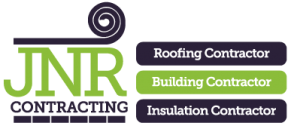Maintaining a building is a crucial responsibility that ensures its longevity, functionality, and value. Whether it’s a residential property, commercial space, or an office building, regular maintenance is essential to keep it in optimal condition.
When it comes to building maintenance, property owners often face the decision of hiring professionals or taking the do-it-yourself (DIY) approach. While both options have their merits, this blog will shed light on the advantages of hiring professionals for building maintenance.
Building maintenance encompasses a wide range of tasks, from routine inspections and repairs to system upgrades and renovations. The expertise and experience of professionals in the field can be instrumental in providing efficient, high-quality maintenance solutions. However, it’s also important to consider the potential benefits and drawbacks of DIY maintenance.
In the following sections, we will explore the pros and cons of both professional building maintenance and the DIY approach.
By understanding the factors involved, property owners can make informed decisions that align with their specific needs and circumstances. Let’s delve into the advantages of hiring professionals for building maintenance and how it can benefit property owners in the long run.
Pros of Hiring Professionals for Building Maintenance
When it comes to building maintenance, hiring professionals offers a range of benefits that contribute to the overall efficiency, quality, and long-term value of the property. Let’s explore the advantages of opting for professional maintenance services.
Expertise and experience
- Trained professionals with specialised knowledge: Professional maintenance technicians possess the necessary training and expertise in their respective fields. They have in-depth knowledge of building systems, components, and maintenance techniques.
- Familiarity with industry standards and regulations: Professionals are well-versed in the latest industry standards and regulations. They understand the importance of adhering to codes and guidelines to ensure safety and compliance.
Time and convenience
- Professionals handle maintenance tasks efficiently: Hiring professionals allows property owners to delegate maintenance responsibilities to trained experts. They can efficiently handle tasks, freeing up the owner’s time for other essential activities.
- Allows property owners to focus on core responsibilities: By entrusting maintenance to professionals, property owners can concentrate on their core responsibilities, such as property management, tenant relations, or business operations.
Quality of work
- Professionals have access to specialised tools and equipment: Professional maintenance providers have access to specialised tools and equipment, enabling them to carry out repairs and maintenance with precision and efficiency.
- Ensure high-quality repairs and maintenance: Professionals are committed to delivering high-quality workmanship. Their experience and attention to detail result in thorough maintenance, reducing the likelihood of recurring issues.
By hiring professionals for building maintenance, property owners can benefit from their expertise, save time, and enjoy the assurance of high-quality repairs and maintenance. In the following section, we will explore the potential drawbacks of the DIY approach to provide a comprehensive perspective.
Cons of DIY Maintenance
While the idea of saving money and taking control of building maintenance may seem appealing, there are several potential drawbacks to the DIY approach. It’s important to consider these cons before deciding to tackle maintenance tasks without professional assistance.
Lack of expertise and knowledge
- The DIY approach may lead to inadequate repairs or maintenance: Without proper training and knowledge, DIY maintenance efforts can result in incomplete or ineffective repairs, leading to recurring issues.
- Lack of familiarity with building systems and components: Professionals have extensive experience working with various building systems and components. DIYers may lack the in-depth understanding necessary to address complex maintenance needs.
Time-consuming and potentially costly
- The learning curve for DIY maintenance tasks: DIY maintenance requires time and effort to learn the necessary skills and techniques. This learning curve can be time-consuming, especially for individuals without prior experience.
- Mistakes can be expensive to rectify: Inadequate repairs or incorrect maintenance practices can lead to more significant damage or safety hazards. Fixing these mistakes can be costly and time-consuming.
Safety risks
- Handling electrical, plumbing, or structural repairs without proper knowledge: DIY maintenance may involve potentially dangerous tasks, such as electrical work or structural repairs. Without proper knowledge, there is an increased risk of accidents, property damage, or personal injury.
- Professionals have the necessary training to minimise risks: Trained professionals are well-versed in safety protocols and possess the necessary skills to handle potentially hazardous situations safely.
Considering these cons, it becomes evident that DIY maintenance may not always be the most effective or cost-efficient option. In the next section, we will explore the benefits of professional maintenance services, emphasizing the long-term advantages they provide for property owners.
Conclusion
In the realm of building maintenance, property owners face the decision of whether to hire professionals or undertake the tasks themselves. While the DIY approach may seem appealing in terms of cost savings and independence, it’s essential to weigh the pros and cons carefully. Upon closer examination, it becomes evident that hiring professionals for building maintenance offer significant advantages.
The expertise and experience of professionals are invaluable when it comes to ensuring efficient and high-quality maintenance. They possess specialised knowledge, are familiar with industry standards and regulations, and have access to specialised tools and equipment.
By entrusting maintenance tasks to professionals, property owners can save time and focus on their core responsibilities.
